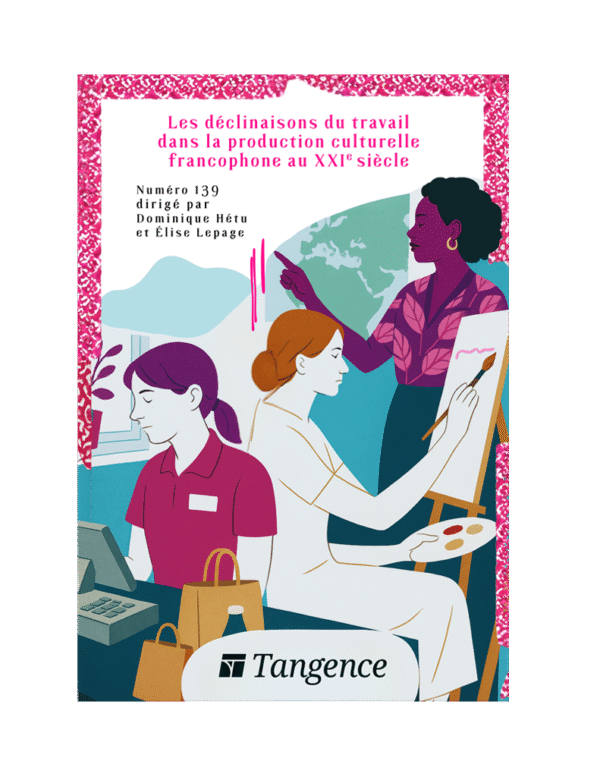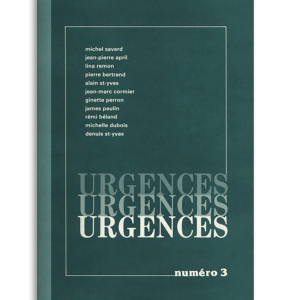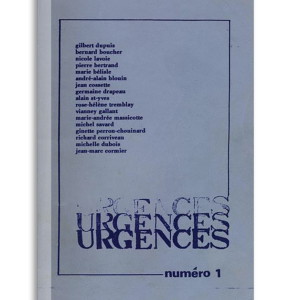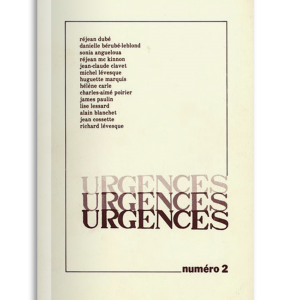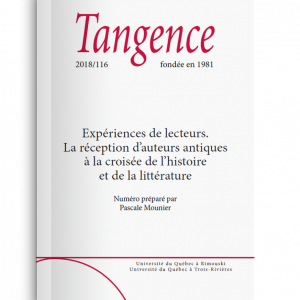Neoliberal derivatives in Wollstonecraft by Sarah Berthiaume
Marie-Claude Garneau
This article examines issues of production, reproduction and creation outlined in the play Wollstonecraft by Quebec playwright Sarah Berthiaume and how they interrelate with respect to the notion of work. In a dramaturgical analysis based, among other things, on critical theories of neoliberalism, the sociology of creative work, and a methodology for the feminist reading of dramatic texts, this study proposes the following considerations : what dynamics develop between the characters regarding the relationship of each to their work, and what is the discourse of each one relative to that of the others ? How does each character experience artistic creation or the creative phase of their work, and how does this experience impact each one’s relations with the others ? In essence, the present article aims to shed light on how Berthiaume’s dramaturgy paints a critical portrait of the contemporary world of artistic work.
“No-one here should feel responsible for anything whatsoever” : Naturalism, bargaining and surveillance capitalism in La loi du marché by Stéphane Brizé (2015)
Florian Grandena and Pierre-Luc Landry
La loi du marché [The Measure of a Man] by Stéphane Brizé (2015) presents Thierry (Vincent Lindon), an unemployed worker in his fifties forced to accept a job as a supermarket security guard to support his family. The film starkly exposes the subjugation of individuals in neoliberal society and their dehumanization at work and by work in three ways : first, by the naturalistic aesthetic of the film, which spotlights the system’s brutal reality ; second, by the intermediary of a culture based on quasi-daily negotiation and bargaining ; and third, by the use of surveillance techniques closely resembling those of the panopticon. This article proposes to discuss the qualities and limitations of La loi du marché as a “social film” ; its analysis, in counterpoint, is based mainly on the now classic text by Jacques Rancière, “Il est arrivé quelque chose au réel” [Something happened to the real] (2000), indispensable for grasping the different ways figures of dissidence are featured in contemporary cinema.
Domestic space and work in Mona Chollet’s Chez soi
Adina Balint
The representation of work regarding the domestic space is the main subject of Mona Chollet’s essay Chez soi. Une odyssée de l’espace domestique [At home. An odyssey of domestic space] (2015), a hybrid text that combines philosophical and sociological discourses with personal testimonies. Inspired by the work paradigms of Anthony Hussenot, a French management science researcher, and the “writing on work” notion of Dominque Viart, this article emphasizes certain current conceptions of work in the West, offering a thematic analysis and study of the discursive strategies of Chez soi. Chollet hypothesizes that the representation of alternative work-from-home practices (reading, writing, Internet researches) is part of a process involving the creation of new ways of living and writing, one that questions productivity and the demand for speed characteristic of contemporary Western neoliberal societies.
Fly-in, Fly-out : Work in remote regions in Érika Soucy’s Les murailles
Élise Lepage
This article proposes to discuss the representation of work in remote areas, more specifically a hydroelectric construction site in the North Shore region of Quebec. The discussion is mainly based on Les murailles [The Walls] by Érika Soucy (2016), in which the narrator recounts her few days stay with her father in a camp at the La Romaine complex. While there, she discovers a workplace that becomes a significant part of the narrative. The discussion is then divided into three parts. First, the work of the geographer Caroline Desbiens offers some historical and geographic context for understanding the importance of these hydroelectric work sites in the history and imagination of Quebec. Next, returning to Soucy’s narrative, the concept of personnel romanesque (literary personnel) theorized by Philippe Hamon, then by Isabelle Kirouac Massicotte in the Quebec and Canadian context, is mobilized to show how this type of workplace-centered narrative often tends to reduce many characters to a dual function : one at the worksite and the other within the narrative. Finally, theories of care underpin a critical analysis of the divisions of paid work at the construction site, and also of the work of care within the workers’ families. Accordingly, this article approaches Les murailles as an eyewitness account of work at a hydroelectric construction site and a discussion of how this type of megaproject conditions the life of workers and their loved ones.
“Unable to work at something else” : Kinship, accompaniment and creation in Véronique Cyr and Sophie Dora Swan
Dominique Hétu
The narratives La jeune fille des negatives [Girl of negatives], by Véronique Cyr (2022) and Voir Montauk [Seeing Montauk], by Sophie Dora Swan (2023) recount, by means of a generic hybridity allowing for different forms of a “space of speech”, the two authors’ lived experiences of illness, maternity, kinship, accompaniment, and writing work. This article proposes a comparative study of these hybrid narratives and their configuration that both resembles and contrasts with the mother-daughter bond between childhood and adulthood through composite processes of creation. Such processes are rooted in the intimacy of one hand reaching out to the other, and are marked by a feminist intertextuality that comes together and informs a contemporary writing that is particularly attentive to the ambivalences and vulnerabilities of care. These notions of attention and vulnerability, mobilized among others in Sophie Bourgault, Veena Das and Sandra Laugier—thinkers about care, vulnerability and voice—also offers insight into the possibilities of writing “malgré les ravages du lien” [despite the ravages of the bond] as Véronique Cyr writes.

